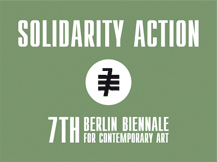Was it the right choice to found museums in Rome, or would it have been better to involve human resources composed of an overlooked generation of art specialists to outline an innovative cultural project? Making a census and gathering the workforce connected with contemporary art in innovative projects would make the difference in cultural production itself. Organizing alternative forms of financing to free culture from politics is not only possible but also indispensable. Non-profit experiences suggest a possible path, though the choice of turning to public financing or not is completely personal. I am referring to the experience of Nomas, the only one about which I feel authorized to speak, which does not make use of public funding. In this case, the insinuation that free market patronage creates lack of security would be a serious distortion. Instead, it creates training, visibility and the prospect of dialogue with the universities, work opportunities, operating with institutional awareness and courage. It is necessary to invent new institutions, from the ground up, from the citizen towards the State. The experience of Teatro Valle proves this. I do not see a responsibility of the commercial sector in the creation of lack of ongoing support for art: instead, we should ask the museums why they increasingly make acquisitions from galleries, and we should ask artists why, when they are still unknown, the museum seems to be the only possible goal (though when success has been achieved, what is important is to be in the right galleries). In Rome projects like the Commission for contemporary art (Consulta per l’Arte Contemporanea) can become a real means of action if there is participation, dialogue, discussion. Attempts like “Vladivostok” take on force only when the artists start to use the work contract as a natural practice. It would be naive to think that the power of the market can be changed by private interests: only the institutions can manage, through good practices and a new type of relationship with artists. Furthermore, there are artists (very rare cases!) whose focus is not the museum, not the gallery, but the art community as a physical place of reflection on art. Rome, in this historical moment, has a great opportunity: to transform contemporary art from a form of mass entertainment into a tool of cultural education, but this has to be done in a transparent way, and in a situation of consensus and participation. This would reduce the power of that caste of art intellectuals that instead of acting critically with respect to political representation as an institution, has concentrated on filling its stomach and its pockets. A transnational network is possible, but participation and open debate are two indispensable premises.
RAFFAELLA FRASCARELLI
Founded (with Stefano Sciarretta) Nomas Foundation in Rome in 2008 to sustain and promote contemporary artistic research.


